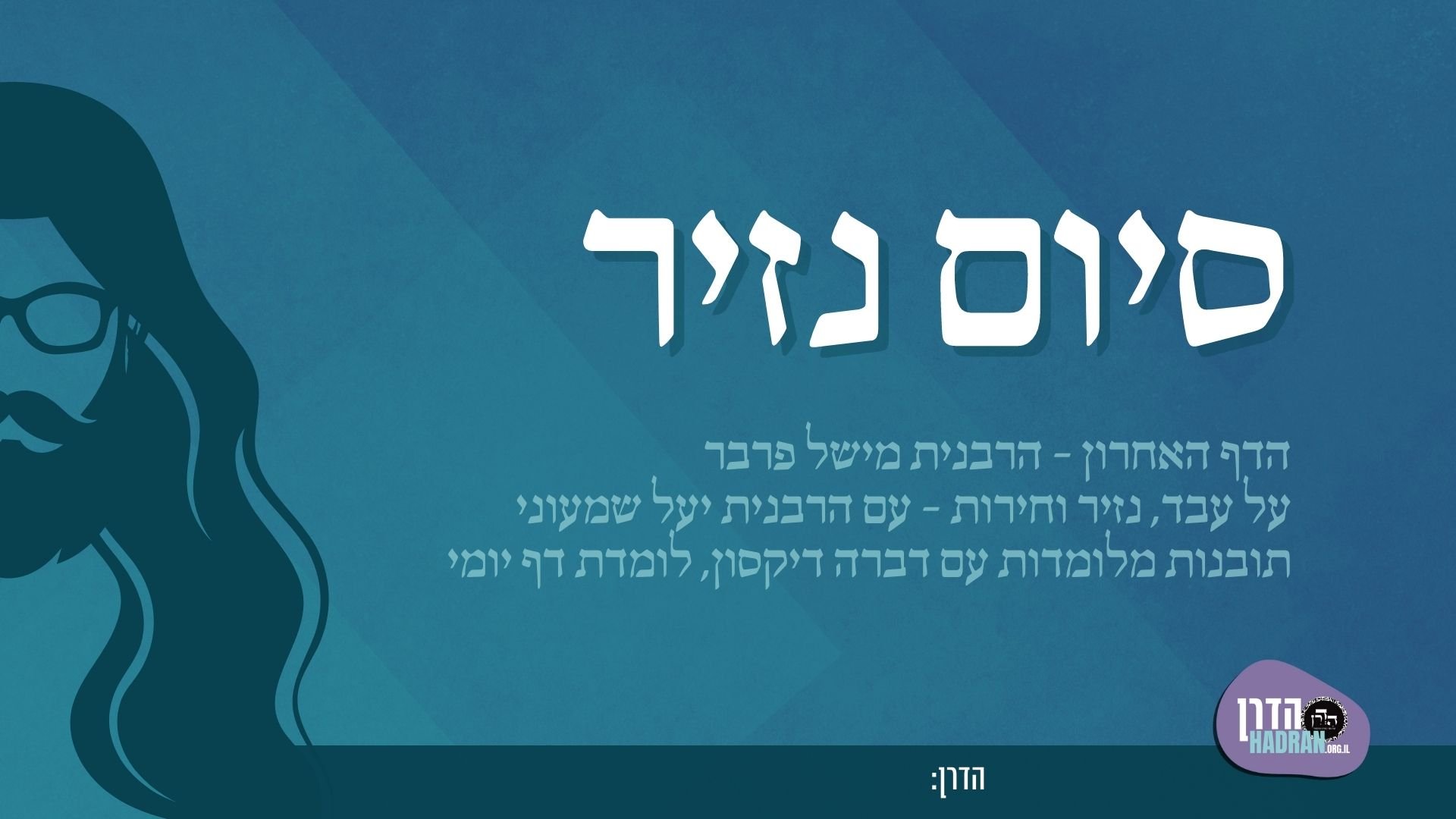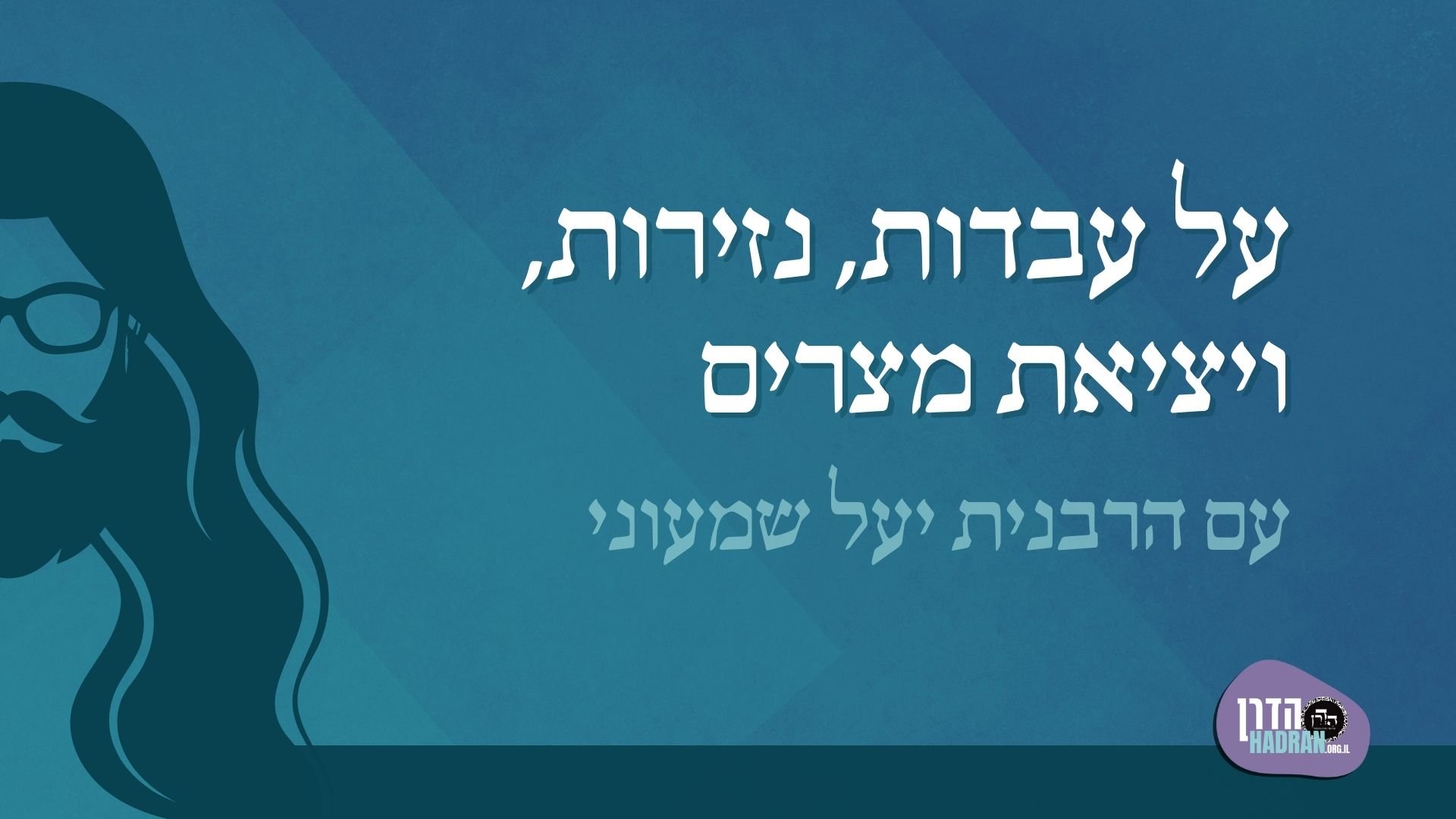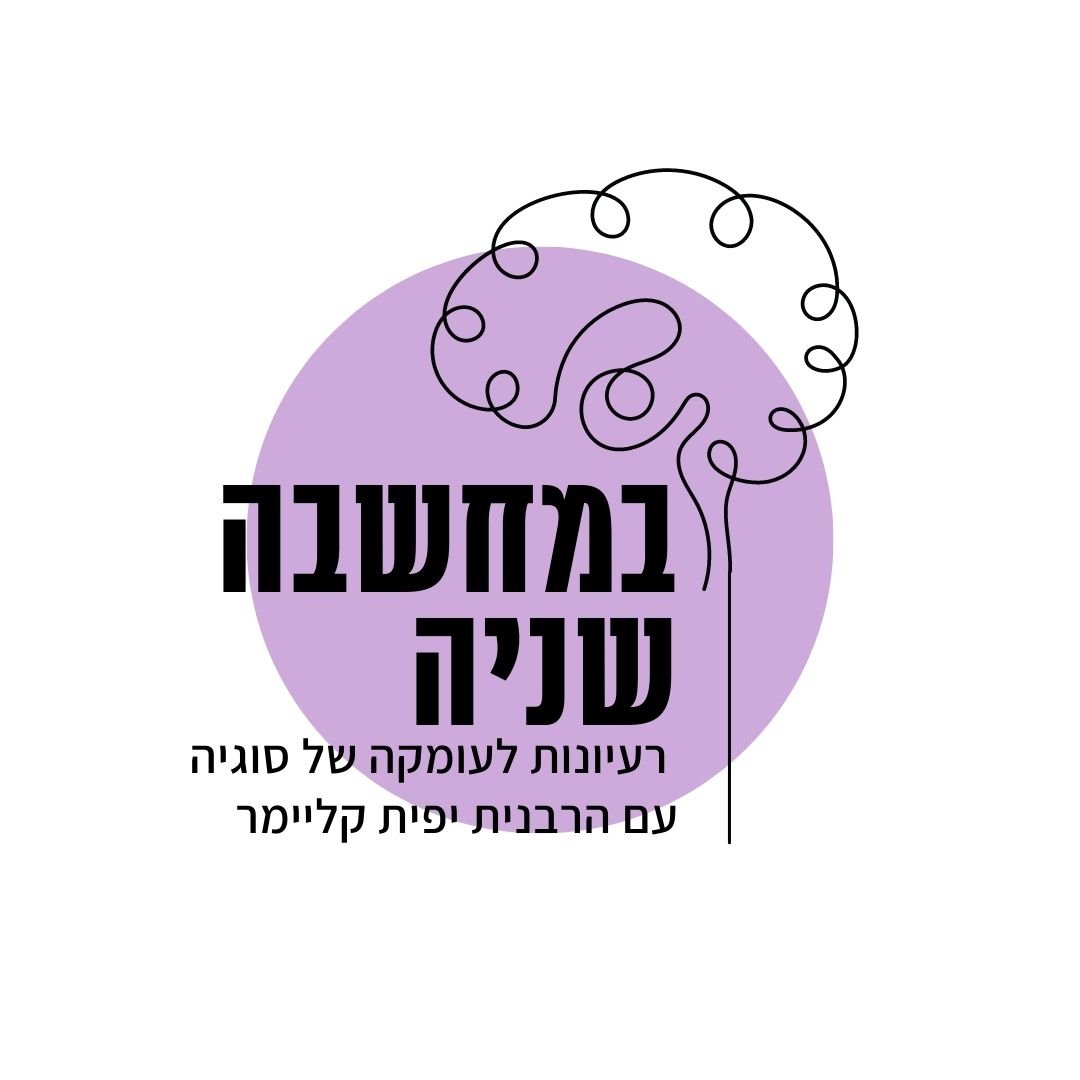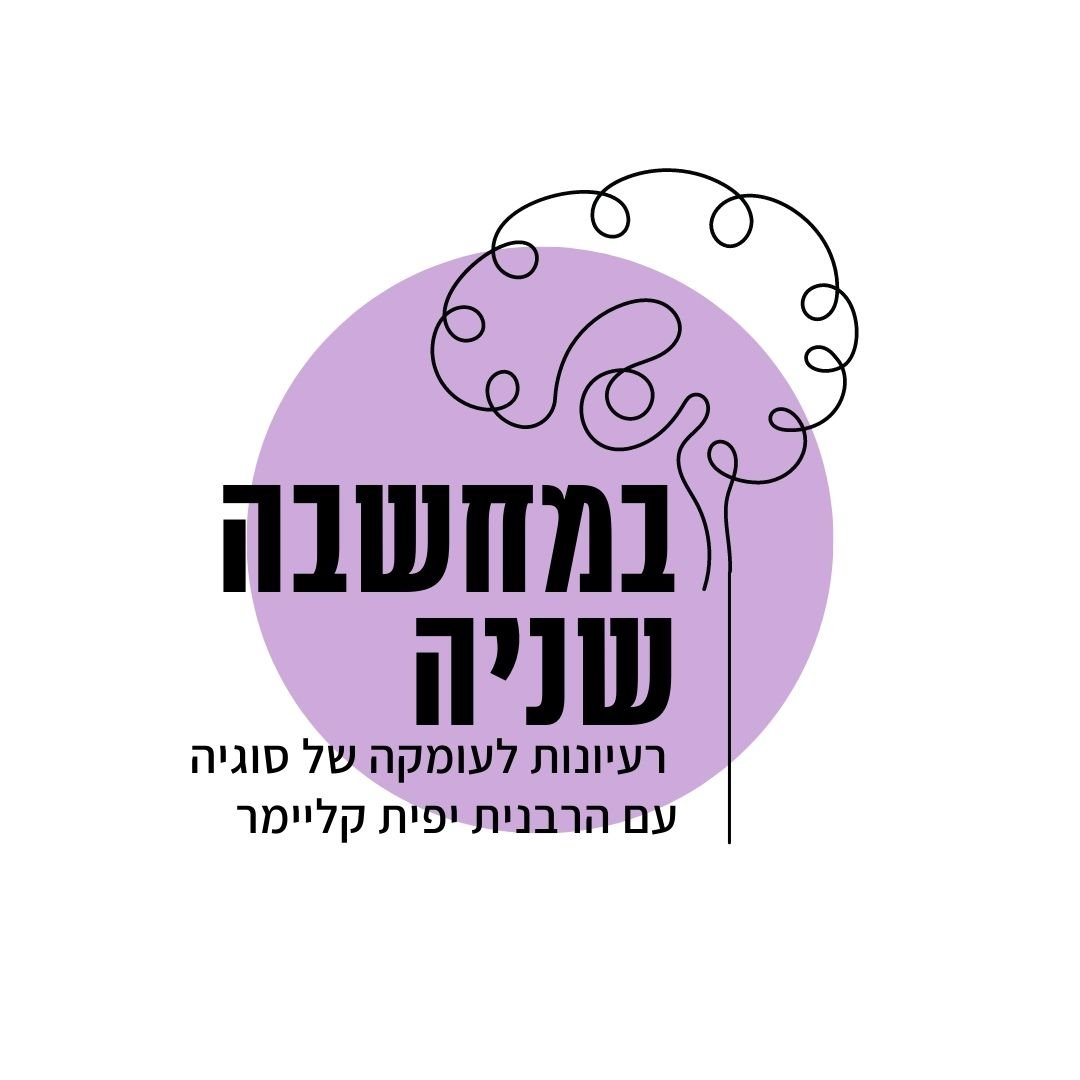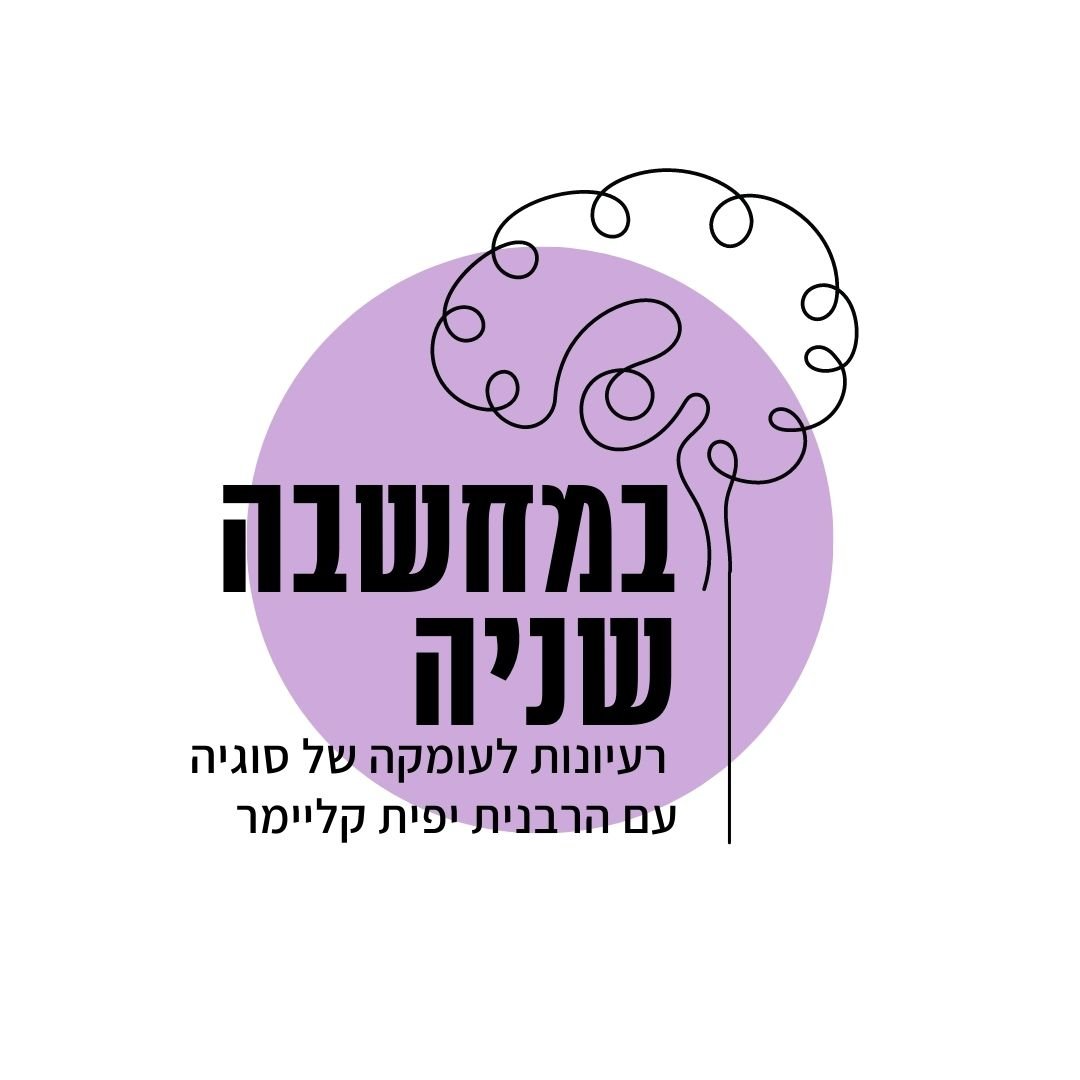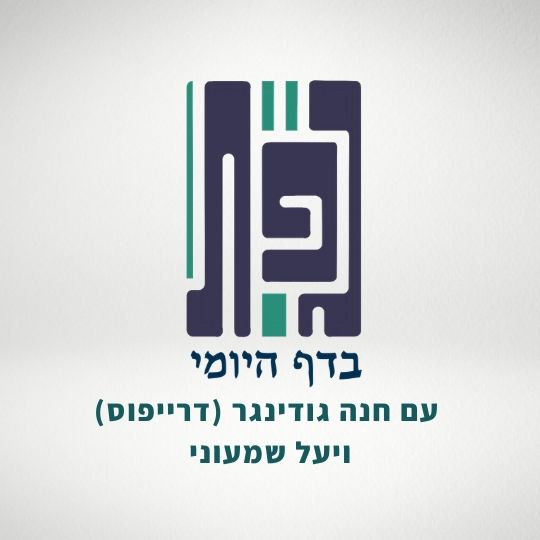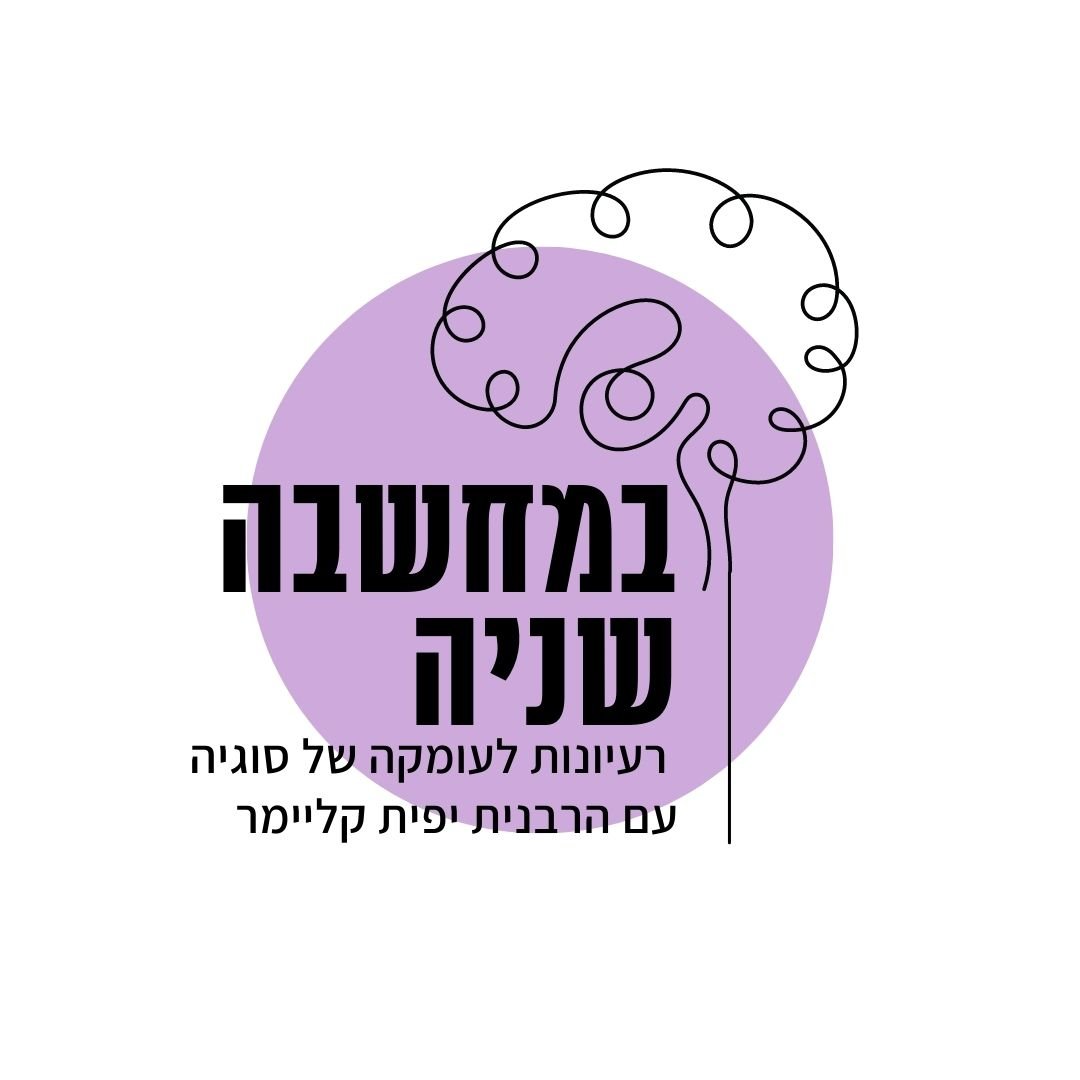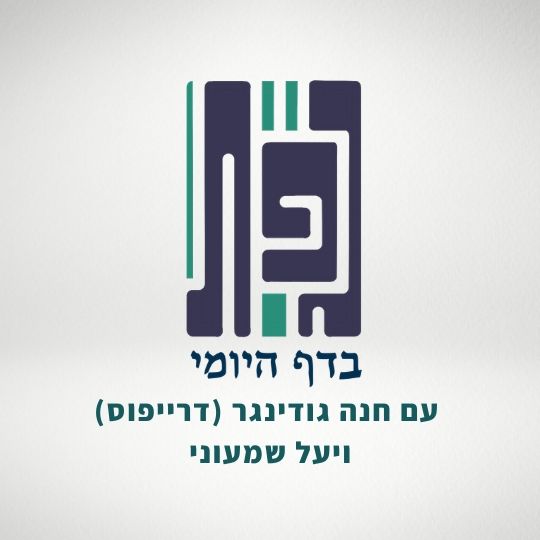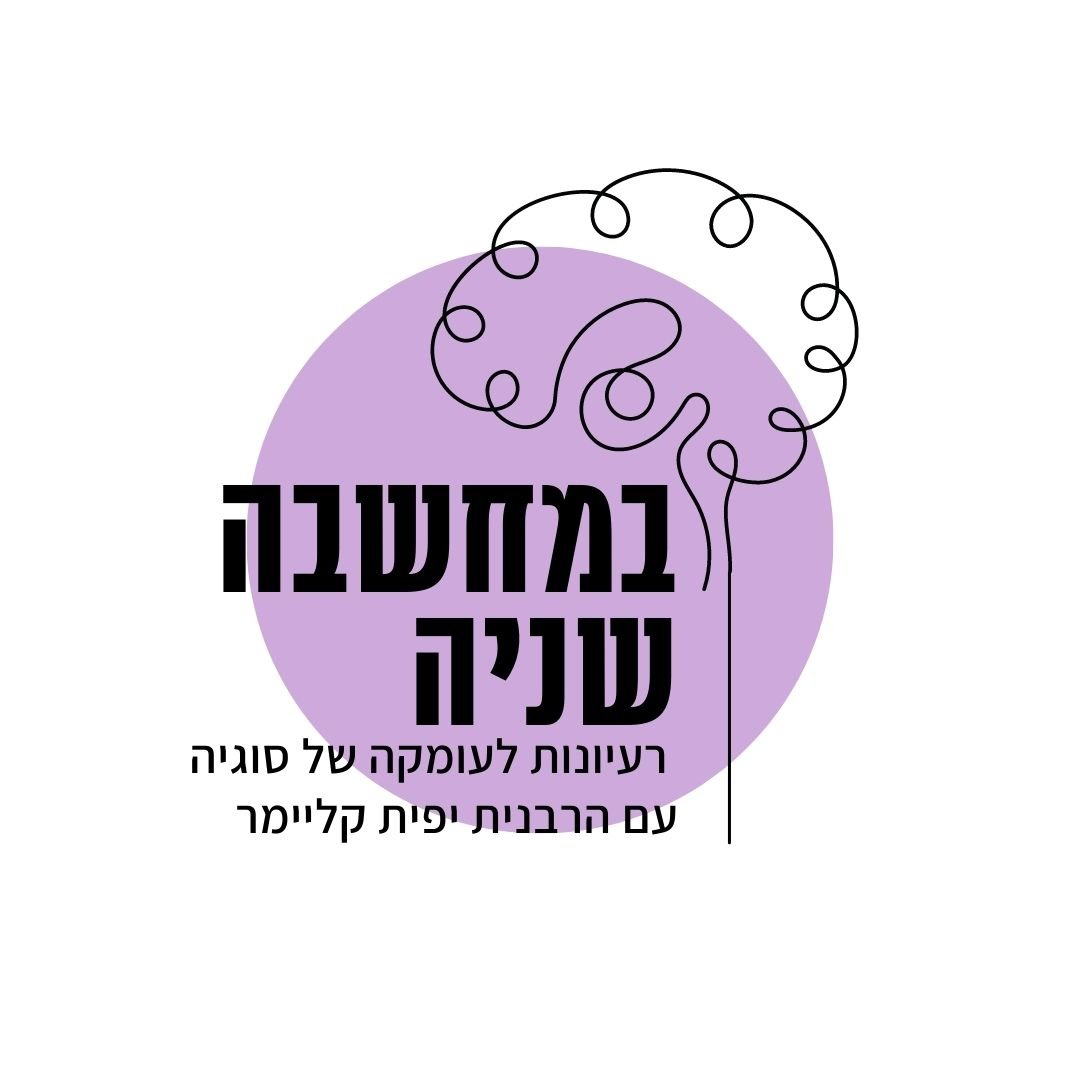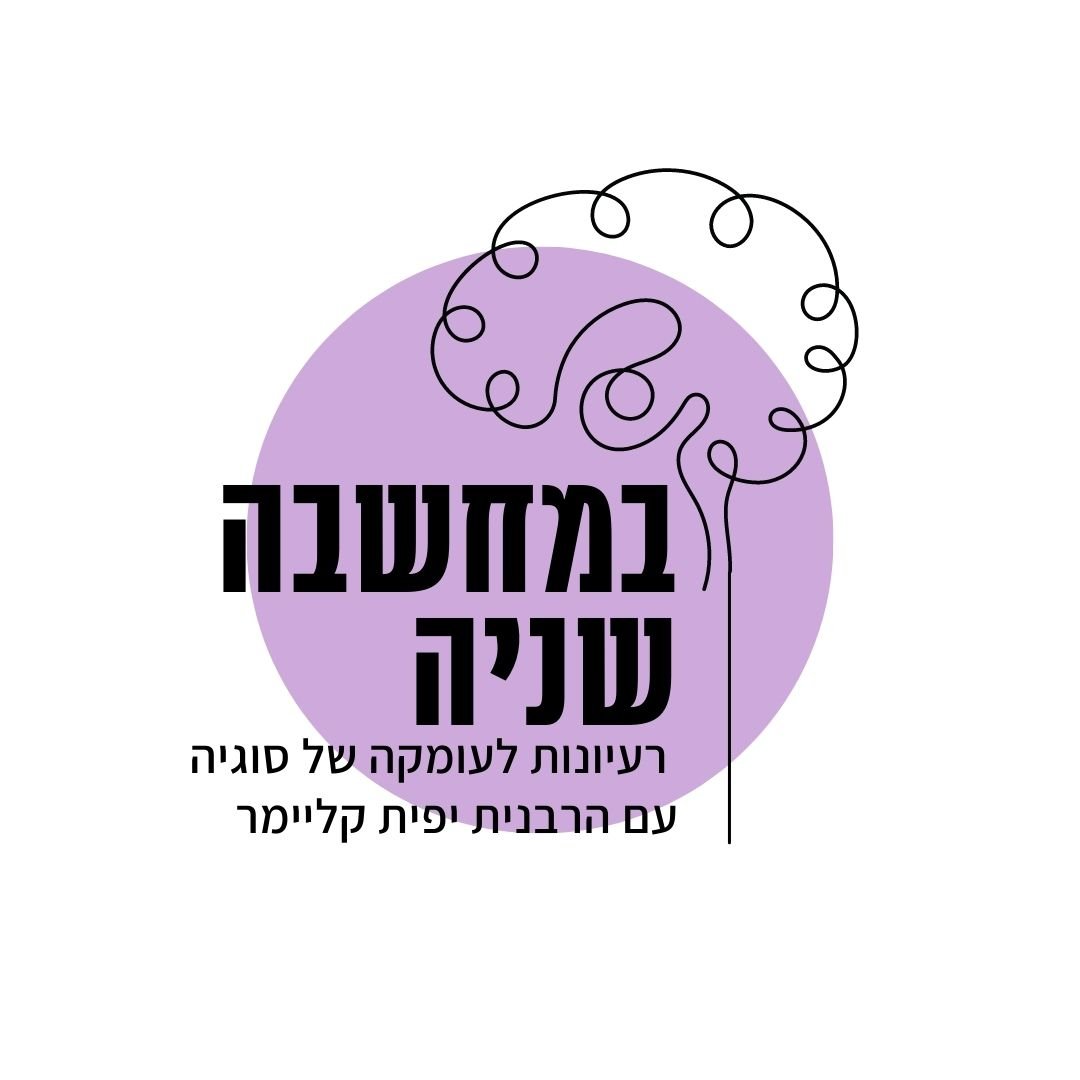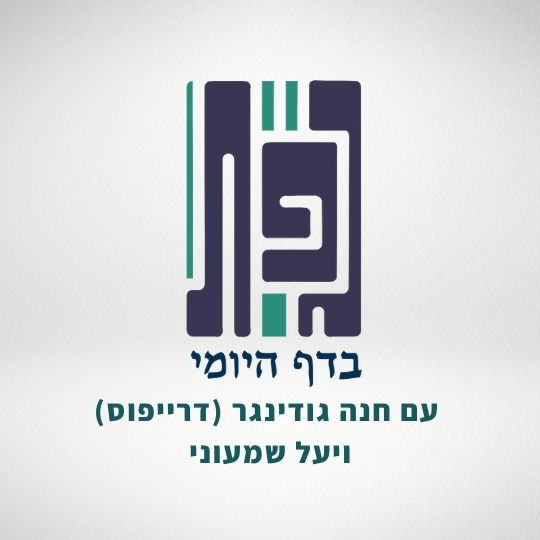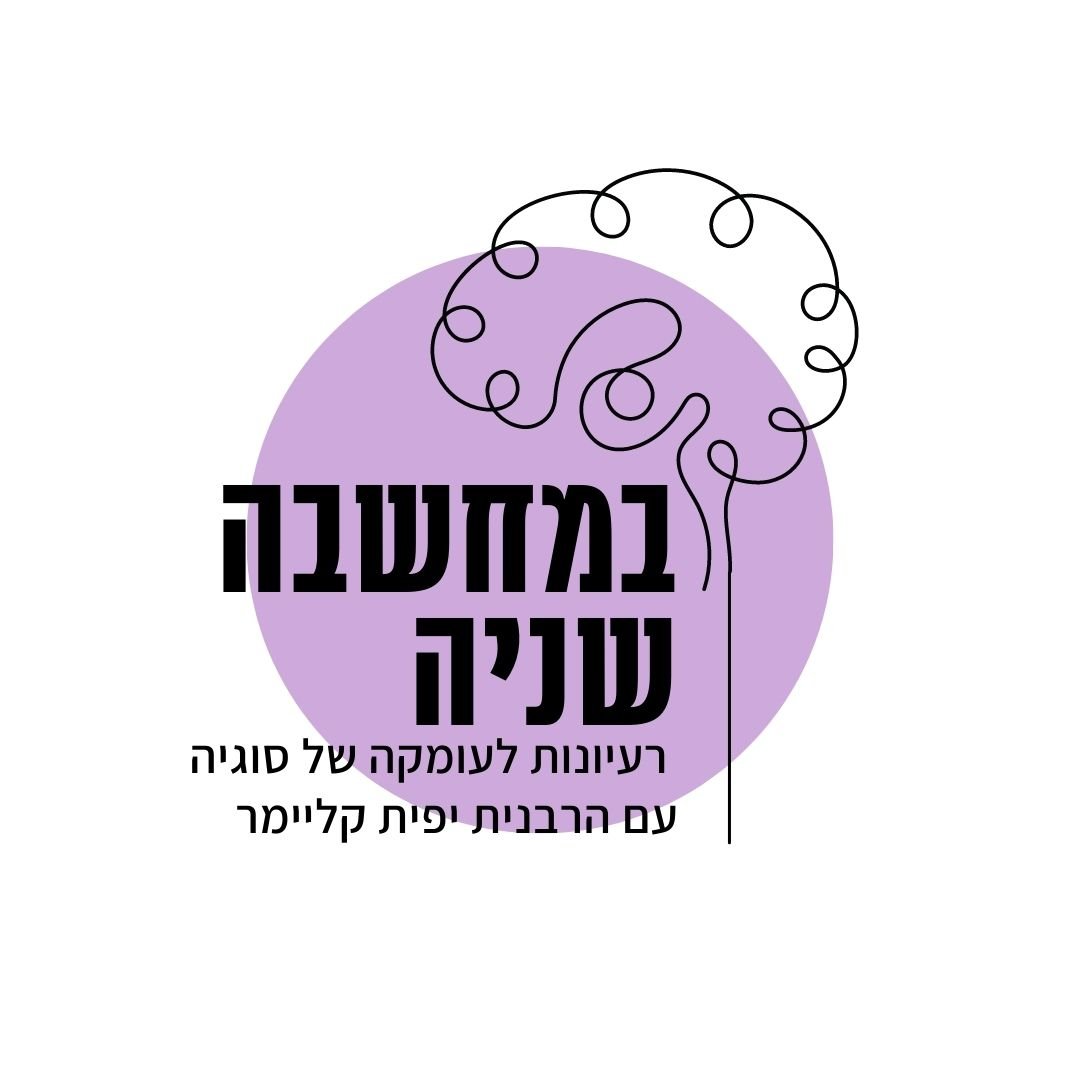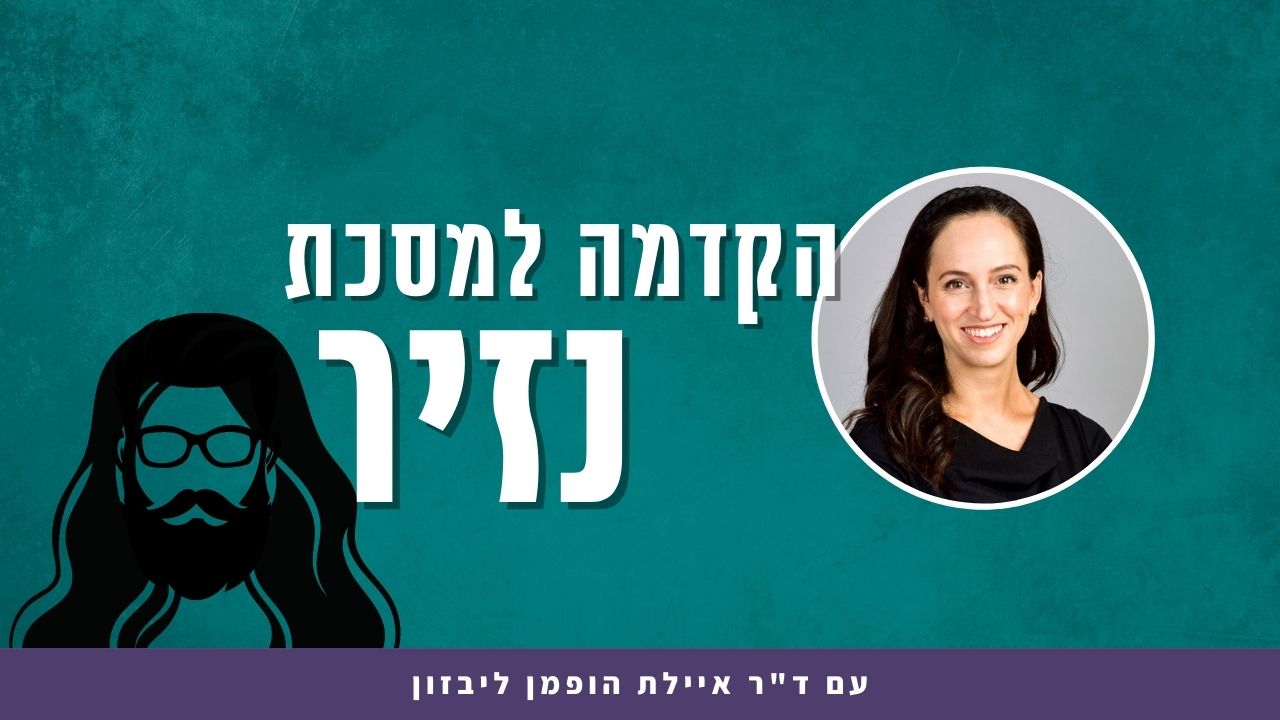מי שנזר מן הגרוגרות ומן הדבילה (תאנים), האם הוא נחשב לנזיר? האם הוא אסור בתאנים? יש מחלוקת בית שמאי ובית הלל. ויש כמה הבנות שונות במה הם חולקים – בנזירות או בנדר לאסור תאנים? יש משנה במנחות קג לגבי מי שמתנדב מנחה מן השעורים, שאין כזה דבר כי חייב להיות מן החיטים. האם הוא חייב להביא מנחה מן החיטים? יש מחלוקת שם. האם זה אותה מחלוקת כמו במשנתינו? חזקיה ור’ יוחנן חלוקים.
רוצה להקדיש שיעור?
כלים
העמקה
רוצה להבין מה באמת קורה מתחת לפני השטח של הסוגיה?
שיעורים, פודקאסטים והרחבות של מיטב המורות שלנו יפתחו לך עוד זוויות וכיווני חשיבה.
חדשה בלימוד הגמרא?
זה הדף הראשון שלך? איזו התרגשות עצומה! יש לנו בדיוק את התכנים והכלים שיעזרו לך לעשות את הצעדים הראשונים ללמידה בקצב וברמה שלך, כך תוכלי להרגיש בנוח גם בתוך הסוגיות המורכבות ומאתגרות.
פסיפס הלומדות שלנו
גלי את קהילת הלומדות שלנו, מגוון נשים, רקעים וסיפורים. כולן חלק מתנועה ומסע מרגש ועוצמתי.
נזיר ט
״הֲרֵינִי נָזִיר מִן הַגְּרוֹגְרוֹת וּמִן הַדְּבֵילָה״, בֵּית שַׁמַּאי אוֹמְרִים: נָזִיר. וּבֵית הִלֵּל אוֹמְרִים: אֵינוֹ נָזִיר. אָמַר רַבִּי יְהוּדָה: אַף כְּשֶׁאָמְרוּ בֵּית שַׁמַּאי, לֹא אָמְרוּ אֶלָּא בְּאוֹמֵר ״הֲרֵי הֵן עָלַי קׇרְבָּן״.
MISHNA: If one says: I am hereby a nazirite and therefore will refrain from dried figs and from cakes of dried figs, Beit Shammai say: His statement renders him a full-fledged nazirite, and his addition: From dried figs, is insignificant, as this fruit is not included in the prohibitions of a nazirite, which include only products of the grapevine. And Beit Hillel say: He is not a nazirite, since he did not accept naziriteship upon himself. Rabbi Yehuda said: Even when Beit Shammai said that this vow takes effect, they said that only in a case where one said that he meant: They are hereby forbidden to me as an offering. In that case it is as though he took a vow rendering the figs forbidden to him. However, Beit Shammai concede that although the vow takes effect, it is not a vow of naziriteship.
גְּמָ׳ ״הֲרֵינִי נָזִיר מִן הַגְּרוֹגְרוֹת וּמִן הַדְּבֵילָה״ — בֵּית שַׁמַּאי אוֹמְרִים: נָזִיר. וְאַמַּאי? ״מִכֹּל אֲשֶׁר יֵעָשֶׂה מִגֶּפֶן הַיַּיִן״ אָמַר רַחֲמָנָא! בֵּית שַׁמַּאי סָבְרִי לַהּ כְּרַבִּי מֵאִיר, דְּאָמַר: אֵין אָדָם מוֹצִיא דְּבָרָיו לְבַטָּלָה.
GEMARA: It is stated in the mishna that if one says: I am hereby a nazirite and therefore will refrain from dried figs and from cakes of dried figs, Beit Shammai say: He is a nazirite. The Gemara asks: But why? The Merciful One states in the Torah in the passage dealing with naziriteship: “From anything that is made of the grapevine…he shall not eat” (Numbers 6:4). In naziriteship, only the fruit of the vine is prohibited. The Gemara answers: Beit Shammai hold in accordance with the opinion of Rabbi Meir, who says: A person does not utter a statement for naught. In other words, if one utters a statement that cannot be fulfilled as stated, his statement is interpreted in a manner that renders it relevant. Here too, Beit Shammai say that he misspoke and actually intended to take a vow of naziriteship.
וּבֵית הִלֵּל סָבְרִי לַהּ כְּרַבִּי יוֹסֵי, דְּאָמַר: בִּגְמַר דְּבָרָיו אָדָם נִתְפָּס. וְהַאי נֶדֶר וּפִתְחוֹ עִמּוֹ הוּא.
And Beit Hillel hold in accordance with the opinion of Rabbi Yosei, who says: A person is also held accountable for the conclusion of his statement. If one states two irreconcilable clauses, e.g., this animal is a substitute for a burnt-offering, a substitute for a peace-offering; the second clause is not disregarded, and the animal assumes both statuses. And this is a vow with its inherent opening, i.e., reason for dissolution. Although he said: I am hereby a nazirite, by adding the words: From dried figs and from cakes of dried figs, he indicated that his intention was that the naziriteship would not take effect.
וּבֵית שַׁמַּאי נָמֵי, נֶדֶר וּפִתְחוֹ עִמּוֹ הוּא!
The Gemara asks: And according to Beit Shammai too, it is a vow with its inherent opening, and since they certainly agree that a vow of this kind does not take effect, why do they hold that this vow takes effect?
אֶלָּא: בֵּית שַׁמַּאי סָבְרִי לַהּ כְּרַבִּי מֵאִיר, דְּאָמַר: אֵין אָדָם מוֹצִיא דְּבָרָיו לְבַטָּלָה. וְכֵיוָן דְּאָמַר ״הֲרֵינִי נָזִיר״ — הֲוָה לֵיהּ נָזִיר, כִּי קָאָמַר ״מִן הַגְּרוֹגְרוֹת וּמִן הַדְּבֵילָה״ — לְאִיתְּשׁוֹלֵי הוּא דְּקָאָתֵי. וּבֵית שַׁמַּאי לְטַעְמַיְיהוּ דְּאָמְרִי: אֵין שְׁאֵלָה בְּהֶקְדֵּשׁ. וְכֵיוָן דְּאֵין שְׁאֵלָה בְּהֶקְדֵּשׁ — אֵין שְׁאֵלָה בִּנְזִירוּת.
The Gemara explains the dispute: Rather, Beit Shammai hold in accordance with the opinion of Rabbi Meir, who said: A person does not utter a statement for naught, and once he said: I am hereby a nazirite, he is immediately rendered a nazirite. When he then says: And therefore I will refrain from dried figs and from cakes of dried figs, he is coming to request that a halakhic authority dissolve his vow, as he regrets having taken the vow and is now seeking to dissolve it. And Beit Shammai follow their standard line of reasoning, as they say: One cannot request that a halakhic authority dissolve a vow of consecrated property, which one can do for vows of prohibition. And since one cannot request that a halakhic authority dissolve a vow of consecrated property, likewise one cannot request that a halakhic authority dissolve a vow of naziriteship, as the legal status of a vow of naziriteship is like that of a vow of consecrated property in this regard.
וּבֵית הִלֵּל סָבְרִי כְּרַבִּי שִׁמְעוֹן, דִּתְנַן: וְרַבִּי שִׁמְעוֹן פּוֹטֵר, שֶׁלֹּא הִתְנַדֵּב כְּדֶרֶךְ הַמִּתְנַדְּבִים.
And Beit Hillel hold in accordance with the opinion of Rabbi Shimon, as we learned in a mishna (Menaḥot 103a): If one vows to bring a meal-offering from barley, since voluntary meal-offerings are brought only from wheat, the Rabbis say: He must bring a meal-offering from wheat, and Rabbi Shimon exempts him entirely, as he did not donate in the manner typical of donors. Since he donated an offering that cannot be sacrificed, his vow is meaningless. Here too, since he took a vow of naziriteship stating that he therefore will refrain from dried figs rather than from wine, his statement is meaningless.
מַתְנִיתִין דְּלָא כִּי הַאי תַּנָּא, דְּתַנְיָא רַבִּי נָתָן אוֹמֵר, בֵּית שַׁמַּאי אוֹמְרִים: נָדוּר וְנָזִיר, וּבֵית הִלֵּל אוֹמְרִים: נָדוּר וְאֵין נָזִיר. בֵּית שַׁמַּאי סָבְרִי לַהּ כְּרַבִּי מֵאִיר וּכְרַבִּי יְהוּדָה, וּבֵית הִלֵּל סָבְרִי לַהּ כְּרַבִּי יוֹסֵי.
§ The Gemara comments: The mishna is not in accordance with the opinion of this tanna. As it is taught in a baraita: Rabbi Natan says that if one says: I am hereby a nazirite and therefore will refrain from dried figs, Beit Shammai say: He has rendered dried figs forbidden to himself by a vow, and he is also a nazirite; and Beit Hillel say: He has rendered dried figs forbidden to himself by a vow, but he is not a nazirite. According to Rabbi Natan, Beit Shammai hold in accordance with the opinion of Rabbi Meir that a person does not utter statements for naught and that he becomes a nazirite as soon as he says: I am hereby a nazirite; and he explains the opinion of Beit Shammai as Rabbi Yehuda does, i.e., that one in this situation has vowed that dried figs are forbidden to him, since the rest of his statement also has significance. And Beit Hillel hold in accordance with the opinion of Rabbi Yosei that one is held to the conclusion of his statement, and he has therefore vowed that dried figs are forbidden to him.
לִישָּׁנָא אַחֲרִינָא אָמְרִי לַהּ: רַבִּי נָתָן אוֹמֵר, בֵּית שַׁמַּאי אוֹמְרִים: נָדוּר וְאֵינוֹ נָזִיר, וּבֵית הִלֵּל אוֹמְרִים: לֹא נָדוּר וְלֹא נָזִיר. בֵּית שַׁמַּאי כְּרַבִּי יְהוּדָה וּבֵית הִלֵּל כְּרַבִּי שִׁמְעוֹן.
Some say a different version of the baraita: Rabbi Natan says that Beit Shammai say: He has rendered dried figs forbidden to himself by a vow and he is not a nazirite; and Beit Hillel say: He has not rendered dried figs forbidden to himself by a vow, and he is not a nazirite. According to this version, the opinion of Beit Shammai is as Rabbi Yehuda explained in the mishna, and Beit Hillel hold in accordance with the opinion of Rabbi Shimon, who maintains that a donation not performed in the manner typical of donors is not a donation.
תְּנַן הָתָם: הָאוֹמֵר ״הֲרֵי עָלַי מִנְחָה לְהָבִיא מִן הַשְּׂעוֹרִים״ — יָבִיא מִן הַחִיטִּים. ״קֶמַח״ — יָבִיא סוֹלֶת. ״שֶׁלֹּא בְּשֶׁמֶן וּלְבוֹנָה״ — יְבִיאֶנָּה בְּשֶׁמֶן וּלְבוֹנָה. ״חֲצִי עִשָּׂרוֹן״ — יָבִיא עִשָּׂרוֹן שָׁלֵם. ״עִשָּׂרוֹן וּמֶחֱצָה״ — יָבִיא שְׁנַיִם. רַבִּי שִׁמְעוֹן פּוֹטֵר, שֶׁלֹּא הִתְנַדֵּב כְּדֶרֶךְ הַמִּתְנַדְּבִים.
§ The Gemara discusses a case mentioned earlier. We learned in a mishna there (Menaḥot 103a): With regard to one who says: It is incumbent upon me to bring a meal-offering from barley, since voluntary meal-offerings are made only with wheat he must bring a meal-offering from wheat. If one vows to bring a meal-offering from flour, since a standard meal-offering is made from fine flour he must bring one from fine flour. If one vows to bring a meal-offering without oil and frankincense, he must bring it with oil and frankincense, in accordance with the halakha. If one vows to bring a meal-offering with half of a tenth of an ephah of fine flour, he must bring a meal-offering with a full tenth, since a meal-offering cannot have less than one-tenth of an ephah of flour. If one vows to bring a meal-offering with a tenth and a half, he brings two units of a tenth of an ephah in his meal-offering. Since half of one-tenth of an ephah is the minimum, his vow is increased to two full tenths. Rabbi Shimon exempts him entirely in all these cases, as he did not donate in the manner typical of donors.
מַאן תַּנָּא דְּכִי אָמַר ״הֲרֵי עָלַי מִנְחָה מִן הַשְּׂעוֹרִים״ מֵבִיא מִן הַחִיטִּים? אָמַר חִזְקִיָּה: בְּמַחֲלוֹקֶת שְׁנוּיָה, וּבֵית שַׁמַּאי הִיא. לָאו אָמְרִי בֵּית שַׁמַּאי כִּי אָמַר ״מִן הַגְּרוֹגְרוֹת וּמִן הַדְּבֵילָה״ הָוֵי נָזִיר, הָכִי נָמֵי כִּי אָמַר ״מִן הַשְּׂעוֹרִין״ — מֵבִיא מִן הַחִיטִּים.
The Gemara asks: Who is the tanna who taught that when one said: It is incumbent upon me to bring a meal-offering from barley, he brings a meal-offering from wheat? Ḥizkiyya said that this halakha is taught as a dispute between tanna’im, and it is the opinion of Beit Shammai. He explains: Didn’t Beit Shammai say that when one said: I am hereby a nazirite and therefore will refrain from dried figs and from cakes of dried figs, he is a nazirite, indicating that he is held to only the first part of his statement, and the conflicting details are ignored? So too, when he said that he will bring a meal-offering from barley, he brings it from wheat, and the same analysis applies to the other cases listed in this mishna.
וְרַבִּי יוֹחָנָן אָמַר: אֲפִילּוּ תֵּימָא דִּבְרֵי הַכֹּל — בְּאוֹמֵר ״אִילּוּ הָיִיתִי יוֹדֵעַ שֶׁאֵין נוֹדְרִין כָּךְ, לֹא נָדַרְתִּי כָּךְ אֶלָּא כָּךְ״.
And Rabbi Yoḥanan said: You can even say that all, including Beit Hillel, agree with the opinion of the Rabbis of the mishna, as the mishna may be stated with regard to one who later says, to clarify his earlier statement: Had I known that one cannot vow in this manner, that one cannot bring a voluntary meal-offering from barley, I would not have vowed that way, only this way, to bring a meal-offering from wheat. Mentioning barley was an error on his part rather than a condition, and he actually meant to bring a standard meal-offering. In this case even Beit Hillel, who maintain in the mishna here that there is no vow at all, deem him liable to bring a proper meal-offering.
אָמַר חִזְקִיָּה: לֹא שָׁנוּ אֶלָּא שֶׁאָמַר ״מִן הַשְּׂעוֹרִים״, אֲבָל אָמַר ״מִן הָעֲדָשִׁים״ — לָא מַיְיתֵי וְלֹא כְּלוּם.
With regard to this ruling Ḥizkiyya says: They taught that he must bring a meal-offering from wheat only if he said that he will bring a meal-offering from barley. But if he said he will bring a meal-offering from lentils, he does not bring anything. The difference is that the meal-offerings of the omer and of a sota are made from barley, so if he said: From barley, he may have mistakenly believed that a voluntary meal-offering can be prepared from barley as well. As everyone knows that no meal-offering is made from lentils, his statement demonstrates that he never intended to bring a meal-offering.
מִכְּדִי חִזְקִיָּה כְּמַאן מוֹקֵים לָהּ לְמַתְנִיתִין — כְּבֵית שַׁמַּאי, וְהָא עֲדָשִׁים לְגַבֵּי מִנְחָה כִּגְרוֹגְרוֹת לְגַבֵּי נָזִיר דָּמוּ, וְקָאָמְרִי בֵּית שַׁמַּאי הָוֵי נָזִיר! הֲדַר בֵּיהּ חִזְקִיָּה.
The Gemara asks: Now consider, in accordance with whose opinion does Ḥizkiyya establish the mishna in Menaḥot? It is in accordance with the opinion of Beit Shammai. But lentils relative to a meal-offering are comparable to dried figs relative to a nazirite, as everyone is likewise aware that one cannot be a nazirite and therefore refrain from figs, and yet Beit Shammai say he is a nazirite. Why not say that one who vows to bring a meal-offering from lentils is obligated to bring a standard meal-offering? The Gemara answers: Ḥizkiyya retracted from it and no longer holds that the mishna in Menaḥot is in accordance with the opinion of Beit Shammai.
וְאַמַּאי הֲדַר בֵּיהּ? אֲמַר רָבָא, מַתְנִיתִין קְשִׁיתֵיהּ: מַאי אִירְיָא דְּתָנֵי ״מִן הַשְּׂעוֹרִים״? לִיתְנֵי ״מִן הָעֲדָשִׁים״! אֶלָּא סָבַר חִזְקִיָּה: כִּי קָאָמְרִי בֵּית שַׁמַּאי הָתָם — כְּרַבִּי יְהוּדָה.
The Gemara asks: And why did he in fact retract from it? Rava said: The mishna caused him difficulty and demonstrated his error. If the mishna is in accordance with Beit Shammai’s opinion with regard to a nazirite, why does the tanna specifically teach the case of one who says that he will bring a meal-offering from barley? Let him teach a greater novelty, i.e., that even one who vowed to bring a meal-offering from lentils is obligated to bring a meal-offering made from wheat. Rather, Ḥizkiyya holds that when Beit Shammai stated their opinion there, i.e., in the mishna with regard to a nazirite, their intention was as explained by Rabbi Yehuda, that one’s statement is interpreted to be meaningful and it can have the meaning of creating a vow that dried figs are forbidden to him. In the case of the meal-offering, even they agree that since one’s vow has no meaning, as there cannot be a meal-offering made of lentils, no vow takes effect.
וְרַבִּי יוֹחָנָן אָמַר: אֲפִילּוּ ״מִן הָעֲדָשִׁים״. וְהָא רַבִּי יוֹחָנָן הוּא דְּאָמַר, בְּאוֹמֵר ״אִילּוּ הָיִיתִי יוֹדֵעַ שֶׁאֵין נוֹדְרִין כָּךְ, לֹא נָדַרְתִּי כָּךְ אֶלָּא כָּךְ״! לִדְבָרָיו דְּחִזְקִיָּה הוּא דְּקָאָמַר.
And Rabbi Yoḥanan said: Even one who vowed to bring a meal-offering from lentils must bring a meal-offering from wheat. The Gemara asks: But Rabbi Yoḥanan is he who said that the mishna is referring to a case of one who says: Had I known that one cannot vow in this manner, I would not have vowed that way, only this way? In the case of the lentils, it is not reasonable to say that he erred in thinking that one may vow to bring a meal-offering from lentils. The Gemara answers: He stated this ruling in accordance with the statement of Ḥizkiyya. Rabbi Yoḥanan was not stating his own opinion; he was challenging the ruling of Ḥizkiyya.
אַתְּ מַאי טַעְמָא קָא הָדְרַתְּ בָּךְ — מִשּׁוּם דְּלָא קָתָנֵי ״מִן הָעֲדָשִׁים״. דִּלְמָא לָא מִיבַּעְיָא קָאָמַר: לָא מִיבַּעְיָא כִּי אָמַר ״מֵעֲדָשִׁים״, דְּמַיְיתֵי מִנְחָה מְעַלַּיְיתָא, דְּאִיכָּא לְמֵימַר מִיהְדָּר הוּא דַּהֲדַר בֵּיהּ, וּתְפוֹס לָשׁוֹן רִאשׁוֹן. אֶלָּא כִּי אָמַר ״מִן הַשְּׂעוֹרִין״, וַדַּאי דְּהָכִי קָאָמַר: אִי קָדְשָׁה כַּמִּנְחָת הָעוֹמֶר,
The Gemara explains his challenge: What is the reason you retracted your earlier opinion that the mishna is in accordance with the opinion of Beit Shammai? You did so because it does not teach: From lentils. That is not conclusive, as perhaps it is speaking utilizing the style of: It is not necessary, as follows: It is not necessary to say that when one says: It is incumbent upon me to bring a meal-offering from lentils, that he brings a proper meal-offering of wheat. In that situation it can be said that by saying: From lentils, he is retracting his first statement and now wants to rescind his vow. And yet Beit Shammai hold that he is held to the first part of his statement, and they do not allow the rescinding of a vow of consecration. But if he said: It is incumbent upon me to bring a meal-offering from barley, since it is possible to explain that certainly this is what he said: If this meal-offering that I have vowed to bring from barley is consecrated like the omer meal-offering,

